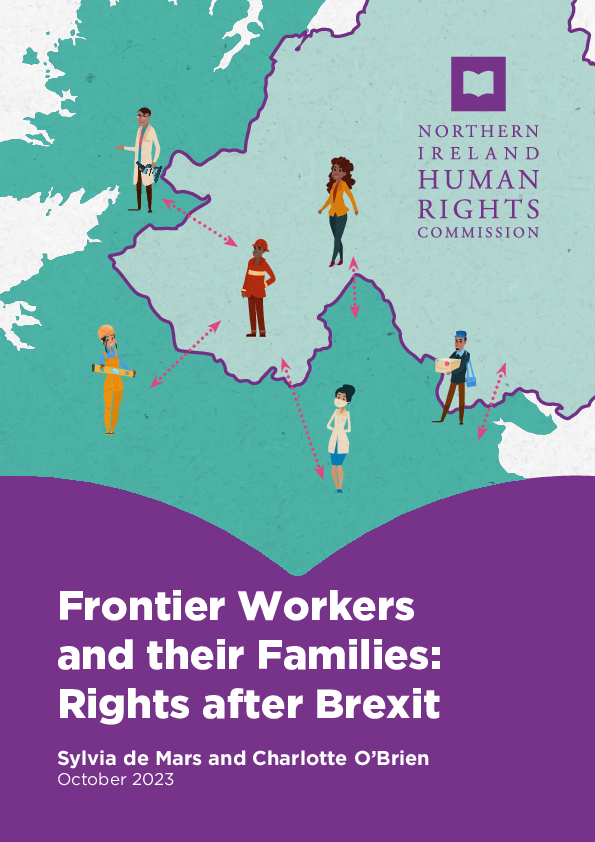Frontier Workers and their Families: Rights after Brexit
The Northern Irish Human Rights Commission commissioned this research paper to explore the effects of Brexit on the rights held by frontier workers on the island of Ireland, with a particular focus on those frontier workers who hold rights within the United Kingdom (by either working or residing there) that should be protected by the Windsor Framework (and its Article 2 non-diminution of rights commitment).1 The work in the report is the result of extensive legal research into UK, EU and international law that affects the rights of frontier workers, as well as a close investigation of UK policy applicable to frontier workers in the aftermath of Brexit. The research itself was conducted over the course of 2021 and 2022, with contents up to date as of 31 March 2023.
The paper commences in Chapter 1 with a detailed overview of the EU law rights held by frontier workers and their families, so as to clearly establish a pre-Brexit baseline that the post-Brexit picture can be compared to. It evaluates in detail the three pieces of secondary legislation in EU law that grant residence, employment and social security rights to frontier workers, and pays specific attention to the ‘margins’ of frontier work: for example, the absence of clear definitions of frontier work in EU law means that certain types of frontier work may not be treated as such, which may have consequences on the ability of frontier workers to exercise their EU law rights.
Chapter 2 explores how the UK implemented the EU law considered in Chapter 1 prior to Brexit, again as part of the ‘baseline’ analysis of pre- Brexit frontier worker rights. The chapter demonstrates that UK compliance with the EU law that affects frontier workers was broadly faithful, but there were shortcomings in the UK approach to addressing EU-originating social security entitlements that may make these less clear or accessible to relevant beneficiaries.
Following this establishment of the ‘pre- Brexit’ picture, Chapter 3 explores the UK-EU Withdrawal Agreement and its UK implementation. The EU law itself is considered, and the shortcomings in defining frontier work are discovered in Part 2 of the Withdrawal Agreement much as they were in EU law more generally.
The UK implementation of Part 2 of the Withdrawal Agreement in places supplements what EU law clearly sets out, but comes with its own shortcomings in defining what frontier work is and how, specifically, frontier workers and their families are protected in UK law after Brexit.

Your browser is out-of-date!
Update your browser to view this website correctly. Update my browser now